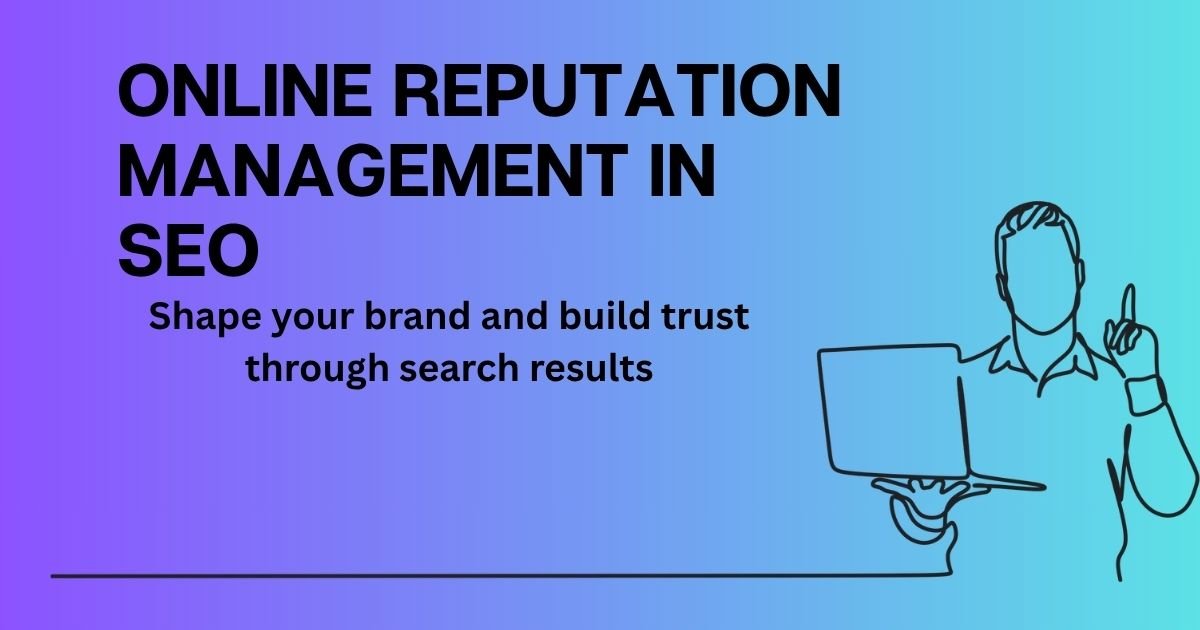Each click, scroll, and search your audience does leaves a digital trail that influences how they think. If you are a business, this means one very important thing: what is being said about you online counts. Online Reputation Management (ORM) is an important aspect of building trust and visibility and managing online information about you or your brand. But what does this all have to do with SEO? And why should you care?
This guide explores what online reputation management in SEO is, the relationship between the two, and how to maintain a solid online reputation for your brand.
Introduction To Online Reputation Management
Online reputation management is a strategy that involves monitoring, influencing, and managing the way that businesses and other entities are perceived online. From a customer review to a social mention to a search engine result, ORM manages any conversation or piece of content that can shape public opinion or influence purchase decisions about a brand.
Suppose, instead, you are researching a local coffee shop and discover a spate of bad reviews on Google. Would you still visit? Probably not. Here is where ORM comes in handy.
Upon combining with Search Engine Optimization (SEO), ORM also guarantees that only positive, accurate, brand-aligned content is prominently displayed on search engine results pages (SERPs) and negates negative or irrelevant content down.
Together, they instantly provide a boost to the online arm of your brand.
How ORM And SEO Work Together
Control Over Search Results
SEO focuses on making your content rank on the top of the SERPs. ORM prevents erroneous content from those results from showing up as good content for your brand. If you hold several top positions with positive content, you naturally push down the negative search results.
Managing Customer Sentiment
Nothing is as powerful as reviews and ratings in SEO and ORM. Search engines use review scores as ranking signals, whereas ORM is all about making your good reviews shine and managing your bad reviews with grace.
Establishing Credibility and Trust
Credibility is relevant to SEO and ORM alike. SEO plays its part in making sure your site is a reputable one in the eyes of search engines, and ORM builds that trust with the people we want to see it by controlling what people find about your brand online.
Integrating your ORM and SEO actions solidifies the authority — more traffic to your site and more love from your audience.
Some Key ORM SEO Strategies to Be Effective at It
Claim and Optimize All Digital Assets
Keep all of your information current on channels such as Google Business Profile, Yelp and Bing Places for Business. Regular NAP (Name, Address, Phone Number) keeps the search engine signal in tune with your brand songs.
Encourage Positive Reviews
Request politely that happy customers leave good reviews on Google, Yelp, Trustpilot.
Give something — a discount perhaps, or membership in a community — in return for honest feedback.
Simplify the process by emailing a link to your review pages.
Monitor Mentions
Utilize alert systems to monitor whenever your business is discussed online. There are tools like Google Alerts that can let you know if somebody is talking about your brand. Fast replies to comments, questions or complaints demonstrate that you value the feedback of customers.
Respond to Negative Feedback Professionally
And bad reviews are not always inevitable, but your response to them is everything. Acknowledge wrong, provide solutions, and try to handle situations with respect. Responding to constructive criticism demonstrates your loyalty to your customers.
Content Marketing
Produce quality blogs, videos, social updates, and PR that are highlighting your brand best. Search engines appreciate new and relevant content, and it’s an exercise to help suppress negative mentions on SERPs.
Leverage Social Media
It is essential also to have active social media profiles when it comes to ORM. Websites like Facebook, Instagram and LinkedIn can rank well in search, so your social media voice is one of the first things searchers encounter.
You can also read: Why Your Business Needs Online Reputation Management
Tools & Technologies Used for Online Reputation Tracking
If you want to help manage your online reputation, you will need to have the correct tools. Here are a few popular options:
-
Google Alerts – This tool is free and easy to use and it notifies you when users mention your brand’s name online.
-
Brand24 – A strong monitoring service which provides you with real time mentions from blogs, news, forums or social media.
-
SEMrush – It is always used to support people in tackling SEO on the priority basis and at the same time it’ll also be helping us in taking the ORM on board at the time of monitoring brand keywords, reviews & competitor mentions.
-
Trustpilot – Reliable platform to oversee your reviews and brand reputation.
-
Reputology – This software zeroes in on reviewing and reply management across platforms.
-
Hootsuite – Ideal for monitoring conversations and maintaining an eye on interactions across all your social media channels, it’s an essential tool for ORM.
These instruments can help to automate and simplify wide swaths of the reputation mgmt job you are able to and will save you time!
Success Metrics for ORM Efforts
For assessing the effectiveness of your ORM strategy, track these major KPIs:
-
Search Engine Rankings – Positive branded content on the SERPs and negative content is being pushed away.
-
Online Reviews – Track the number of your business’s reviews, sentiment, and average star rating overall.
-
Social Media Mentions – Monitor your brand mentions on all networks to know your audience and measure sentiment and engagement.
-
Customer Feedback – Gather firsthand insight through surveys, or by emailing your customers, to know where your reputation falls in your community.
Success in ORM is not always instantaneous, so maintaining the course and being patient is essential.
Future Trends in ORM and SEO
The world of digital is ever evolving, and ORM is no different. Here’s what to watch:
-
AI Power – From chatbots to predicting analytics, AI is becoming more important in SEO and ORM when handling large amounts of data and in bulk ORM management.
-
Voice Search Optimization – Now that more and more people are turning to voice assistants, like Alexa and Siri, businesses must also optimize for voice search. That is to say, stronger presence in featured snippets or FAQs.
-
Video Content – Video reviews and testimonials are powerful with audiences and certain platforms like YouTube or TikTok have heavy search result influences.
-
Customer Advocacy – Converting happy customers to brand advocates can spread positive sentiment about your organization everywhere.
By adjusting to this evolution, you can make sure your ORM and SEO
If you want to improve your online reputation you can rely on the services our team of experts, but if you prefer to do it yourself follow these keys and experience the results for yourself.
Learn about selecting chatbots in Choosing the Best Business Chatbot.





